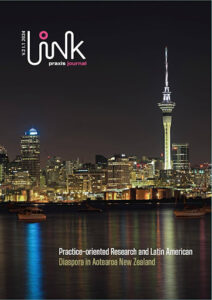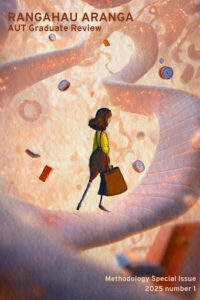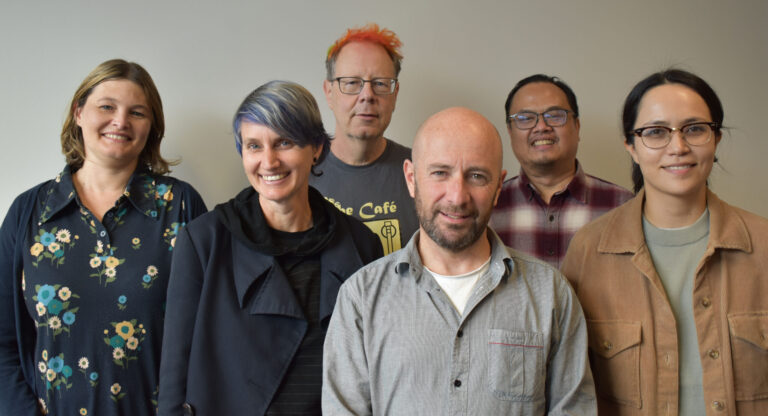In this guest post, Donna Coventry and Luqman Hayes discuss the value of Tuwhera, an open access platform supported by Research Services and Digital Development teams at Te Mātāpuna Library & Learning Services at AUT (Auckland University of Technology) in Aotearoa, New Zealand.
Tell us a little about Tuwhera – and particularly the OA journals you support
Tuwhera (pronounced ‘tu-fer-a’ – see Māori Dictionary to hear pronunciation) can be translated to mean ‘be open’ in Te Reo Māori, the Indigenous language of Aotearoa, New Zealand. Tuwhera is the name we give to the umbrella of services the Library runs in support of open research at AUT, from our institutional repository to our open publications hosting service, and reflects our commitment to creating a sustainable and equitable knowledge commons.
The journal hosting service was launched in 2016 with two titles and now hosts 21 peer-reviewed, Diamond open access journals. These journals cover a range of disciplines, including finance, architecture, health, counselling and psychotherapy, art and design, media, hospitality, employment relations, criminology, learning and education.
Our journals, along with conference proceedings and monograph series are run on PKP’s Open Journal Systems. Tuwhera also publishes eBooks on Open Monograph Press and has recently begun publishing OERs on Pressbooks via the CAUL OER Collective.
How do the journals make a difference in the subject field or region?
Themes of inclusion and equity are central to why our Tuwhera editors put the time and effort into producing Diamond journals. Some find that content relevant to their field, often region specific, isn’t covered by big commercial publishers. For example, the editors of Pacific Health, an interdisciplinary journal focusing on health, communities and the environments of the Asia Pacific Rim, designed their publication to specifically focus on a region where research wasn’t being covered by for-profit journals.
We are in a part of the world struggling with a history of colonisation, and some Tuwhera editors are actively addressing this. Decolonization of Criminology and Justice literally has this intent in their journal title! Te Kaharoa is a journal dedicated to Māori, Pasifika and Indigenous research, scholarship and creative work. The editors of Ata: Journal of Psychotherapy Aotearoa New Zealand, are committed to biculturalism; this is expressed in the structure of the journal, with two sets of editors and two editorial boards. Link Praxis’ provides a forum for disseminating creative research practices in the Global South.

Other editors want to bridge the gap between academia and practice by introducing journals that provide a publication platform for industry voices and practice-led research. The New Zealand Journal of Teachers’ Work (indexed in DOAJ) is an example of a journal that aims to disseminate New Zealand and international research about and by practising teachers. Hospitality Insights provides short, peer reviewed summaries of academic research for the hospitality industry and community.
Diamond open access gives editors the scope to explore diverse formats of publication other than the traditional academic journal – such as including creative works or publishing research summaries as opposed to full articles. The editors of Ethnographic Edge recognise and encourage dynamic ways to disseminate knowledge. Pacific Journalism Review (now publishing as its sister journal Pacific Media), celebrates a diverse range of contents from photo essays and special reports through to traditional research articles.
It’s also the aim of many of our editors to foster the development of early career researchers. They seek to provide the scaffolding necessary to get new authors published. The Pacific Journal of Technology Enhanced Learning aims to provide new and emerging, as well as experienced researchers an open access platform to share their findings and discourse. Rangahau Aranga, supported by the library’s Research Services Team, is run by and for the University’s postgraduate, emergent scholarly and creative voices.

What motivates you to be involved with Tuwhera – and why is OA important
Donna
Open access is important to me as it provides equitable access to research (both authors and readers), creates opportunities to avoid financial barriers (via green or diamond publishing) and promote inclusivity in scholarly communication. Tuwhera is more than just Diamond open access, but Diamond is the part I most enjoy. While our green open access offerings are limited to our university staff and students, the Diamond journals provide an opportunity for all authors globally to publish openly and free of charge.
Luqman
As someone who helped launch the service, I have a particular personal attachment to Tuwhera. However, I feel the kaupapa (principles, value, philosophy) which inform Tuwhera are what keep me motivated to ensure its sustainability and its evolution. I am less involved with the day-to-day work of Tuwhera now but my commitment to further developing a service which supports sustainable, equitable and inclusive open research has never been stronger. This is reinforced by both a personal as well as an institutional commitment to upholding the principles and intent of Te Tiriti o Waitangi in centring and amplifying Māori research along with equitable access to it, where appropriate.
Why do you think DOAJ is important to the scholarly community?
Donna
Not all our editors are interested in being indexed but for those that are, we always suggest they aim for DOAJ first. The primary reasons behind this are credibility and discoverability. Librarians trust DOAJ as a reliable guide to trustworthy journals, so to be indexed on DOAJ gives the journal a seal of credibility.
Discoverability, such as being findable on library search systems, is another key motivation for being indexed on DOAJ.
I support DOAJ’s values regarding ‘not considering’ metrics and impact factors when assessing journal quality. Our Diamond journals are all scholar-led and many of them are very new – they are never going to compete in a ‘numbers game’ with well established, commercial publisher-led journals. DOAJ gives scholar-led, independent journals a chance to be seen as trustworthy and to be found.
Luqman
In an era when marginalised, oppressed and colonised peoples are under increasing amounts of violence, erasure and silencing, working with an organisation which upholds and acts upon principles which support and further diversity, equity and inclusion is hugely important. Organisations like DOAJ can use their platform to work in solidarity with publishers and editors to support, amplify and advocate for those whose work is jeopardised by attacks on intellectual and academic freedom.
What could DOAJ do in the future to help journals such as yours?
Donna
Journal indexing sites are built on western values and methodologies and what is seen as ‘credible’ is often based on these traditional structures.
Many parts of the world, including New Zealand and the South Pacific, are struggling with a history of colonisation. I’d love to see DOAJ provide a platform for those journal editors whose journals support Indigenous methodologies and diverse content over traditional western formats.
This could include supporting the use of Traditional Knowledge and Biocultural Labels within article metadata.
Otherwise, please keep existing as a place to support our community and scholar-led journals!
Luqman
To build on Donna’s excellent points, it would be great for DOAJ to give credibility to ‘other’ forms of research output, beyond the published artefact, in ways that acknowledge the diverse and shifting nature of open research beyond legacy systems.
Tuwhera is active on Bluesky @tuwhera.bsky.social

Donna Coventry
Donna Coventry is the Scholarly Communications Coordinator at Te Mātāpuna: Auckland University of Technology Library. As well as working with Tuwhera’s diamond publications, her work includes general scholarly communications duties such teaching and answering publishing and impact queries; supporting Open Education Resources; working with Research Data Management and working with the repository team to promote green open access.
Luqman Hayes
I am the Senior Manager for Research Services at Te Mātāpuna Library and Learning Services at AUT, a team of research and scholarly communications librarians. I helped set up the Tuwhera hosting service in 2016 and have served on the boards of the Journal of Librarianship and Scholarly Communication and the Tohatoha Aotearoa Commons. @luqmanhayes.bsky.social
